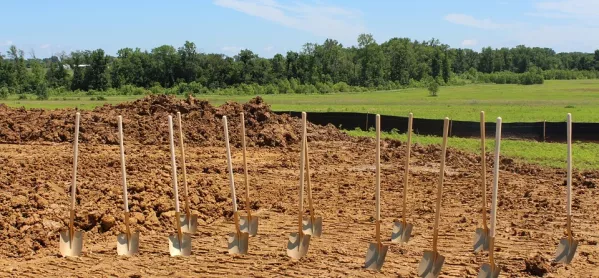- Home
- ‘Groundbreaking’ study aims to hone teacher education
‘Groundbreaking’ study aims to hone teacher education

Initial teacher education (ITE) has been under fire in Scotland in recent times. Now, Tes Scotland can reveal details of a “unique” project designed to ensure a steady supply of high-quality teachers at a time of extreme strain on the workforce.
The research - described by the academics involved as “groundbreaking and unique” - will follow hundreds of 2017-18 teacher-education graduates as they progress through the first five years of their careers. The goal is to uncover once and for all the essentials of high-quality ITE.
It follows the attempt of Teach First - a social enterprise tackling educational disadvantage in England and Wales - last year to get a Scottish version of its programme up and running; the move was resisted by Scottish teaching unions and teacher-education institutions, which objected to new teachers being placed in charge of classes after just six weeks of training.
However, concerns have been raised about the quality of new teachers in Scotland, with primary and secondary heads questioning the calibre of probationers entering the system. Scottish teacher education institutions are also struggling to fill places on their secondary courses at a time of teacher shortage.
More ‘coherent’ ITE
Graham Donaldson, author of the seminal 2011 report on Scottish teacher education, Teaching Scotland’s Future, is not involved in the new research, but said it would help to improve international understanding of the impact of teacher education. Donaldson, who sits on the Scottish government’s International Council of Education Advisers and who is a former chief inspector of education, said he hoped the study would uncover the elements of ITE that encouraged teachers to be reflective practitioners dedicated to improving and developing over the course of their careers. He also hoped that it would improve the coherence of ITE programmes.
Donaldson said: “Too often, students see theory and practice in separate boxes - you do the stuff at university to pass the exams and you learn how to teach in school. We need to get the relationship between the two much closer.”
He added: “There is surprisingly little good research on the impact of teacher education. This [study] has the potential to contribute to our understanding of teacher education, not just in Scotland, but internationally.”
The University of Edinburgh’s Aileen Kennedy and the University of Strathclyde’s Paul Adams are the principal investigators on the project, Measuring Quality in Initial Teacher Education (MQuITE). MQuITE will be funded to the tune of £400,000 by the Scottish government, and Adams will provide an early indication of progress at the Scottish Learning Festival in September.
The research - which will follow at least 300 new teachers - is a collaboration between all nine teacher-education institutions and also involves the General Teaching Council for Scotland.
Kennedy acknowledged that the project could generate some uncomfortable findings. However, she said, “the bigger danger is not to ask these questions”.
She added: “It does not matter if we expose some things that are not great. That’s the whole point of doing it - and we can then do something about it.”
Online survey
The researchers have already started to gather data and, in the coming weeks, every ITE student graduating in Scotland this year will be asked to complete an online survey about their experiences. University teaching staff and school staff are also being invited to share their thoughts.
Kennedy said: “For too long in Scotland, we have relied on anecdote and sensationalist stories about how many hours of whichever aspect whichever teacher-education institution is doing, and making assumptions about quality from that. This research will support a more realistic and research-informed national conversation about initial teacher education.”
Adams said he hoped that the research might reveal the kind of ITE that encouraged new teachers to remain in the profession, since a significant proportion are dropping out during the five years following qualification.
EIS general secretary Larry Flanagan said that, even though the teaching union generally supported current ITE arrangements, “an ongoing review of ITE programmes is essential”.
He added: “There are concerns about universities transferring too much of assessment and teaching of students on to schools, without schools being resourced to provide this, and, in secondary, a lack of subject specialism emerging in university provision.”
A Scottish government spokesman said the project would provide more detailed insight and understanding of how effectively ITE prepared newly qualified teachers for the classroom.
This is an edited version of an article in the 1 June edition of Tes Scotland. Subscribers can read the full article here. To subscribe, click here. This week’s Tes magazine is available at all good newsagents. To download the digital edition, Android users can click here and iOS users can click here.
Register with Tes and you can read two free articles every month plus you'll have access to our range of award-winning newsletters.
Keep reading with our special offer!
You’ve reached your limit of free articles this month.
- Unlimited access to all Tes magazine content
- Save your favourite articles and gift them to your colleagues
- Exclusive subscriber-only stories
- Over 200,000 archived articles
- Unlimited access to all Tes magazine content
- Save your favourite articles and gift them to your colleagues
- Exclusive subscriber-only stories
- Over 200,000 archived articles



